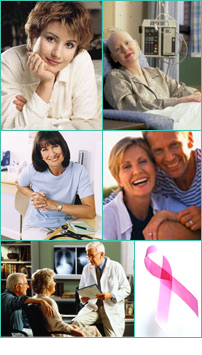Yes. Exercise offers many benefits for breast cancer patients. In considering an exercise program during treatment and recovery, It is essential to consult with your doctor to create an exercise program that is right for you and appropriate for your current phase of treatment and recovery.
In the past, however, many breast cancer patients decreased their physical activity after diagnosis, resulting in undesired weight gain within one year. This conclusion was based on an analysis of lifestyle habits of over 1,000 women with early-stage breast cancer in California, Washington state, and New Mexico who participated in the National Cancer Institute-sponsored Health, Eating, Activity, and Lifestyle (HEAL) Study.
According to Melinda Irwin, Ph.D., M.P.H., a lead researcher in the study, factors related to decreased physical activity were the pre-diagnosis levels of physical activity, pre-existing overweight status of some patients, and intensive treatment of some patients. Current studies are exploring the effect of exercise on hormone activity and outcomes in breast cancer patients.
Of course, finding out that you have breast cancer is extremely stressful, and the focus of your attention may turn to other issues in your life. However, dramatically reducing your physical activity does not make you more comfortable during therapy, nor does it help you conquer cancer. In fact, if you exercise, you may feel stronger and have more energy to do more things.
Currently, it is unknown whether exercise resulting in controlled weight loss after diagnosis of early-stage breast cancer could improve outcomes of patients who were obese prior to diagnosis of breast cancer. Obese patients have been shown to have significantly worse outcomes, including spread of the cancer to other parts of the body and lower rates of 5-year survival, based on a study of over 2,000 patients with early-stage breast cancer.
A program of regular, moderate exercise and maintenance of healthy weight in breast cancer patients has been associated with the following benefits for early-stage breast cancer patients during treatment:
Decreasing muscle wasting (loss) and increasing lean body mass in patients undergoing aggressive therapy
Decreasing body fat and reducing weight gain
Limiting a decline in metabolism and reducing fatigue (feeling weak) in patients undergoing aggressive therapy
Increasing energy in patients during adjuvant therapy (e.g.: chemotherapy, tamoxifen, and radiation therapy) following surgery
Improving physical function, including cardiovascular function, cardiovascular endurance, and cardiopulmonary function
Lessening nausea in patients undergoing aggressive therapy
Improving range of motion and strength
Preventing lymphedema
Decreasing “frozen shoulder”
Reducing days missed from work
Relieving stress, anxiety, and depression
Providing an emotional boost, resulting in better emotional and social well-being
Improving satisfaction with body
Improving quality of life
Lowering rates of recurrence of cancer
Increasing survival
If you are beginning an exercise program during treatment, consult with your oncologist and an exercise physiologist experienced in working with women with cancer. These healthcare professionals can assess your general health, your level of fitness, and recommend an activity program that appeals to you and is right for you.
All breast cancer patients should consult with their doctors before beginning any type of exercise program during treatment. If you have had a mastectomy with or without removal of nearby lymph nodes and, therefore, are at risk for lymphedema, ask your doctor when it is safe to begin using the arm on the side of the mastectomy. If your doctor feels that strength-training involving upper-body exercises are suitable for you, you should wear a compression sleeve on the affected or at-risk arm.
When considering an exercise program, other factors to discuss with your doctor are the effects of certain chemotherapeutic drugs on cardiac function and bone density and the stage of the disease. Although most of the studies on exercise during treatment have involved women with early-stage breast cancer, some women who are being treated for advanced breast cancer also may benefit from exercise recommended by their doctor.
Types of exercise suggested during treatment include:
Physical therapy for improvement of strength and range of motion in the arm
Movement exercises for posture, body alignment, flexibility, and strength
Walking
Swimming
Dancing
Yoga
To help you make your exercise program effective, safe, and fun, ask your oncologist, nurse, exercise physiologist, or local chapter of your breast cancer advocacy group to recommend books, educational posters, and videos that explain and demonstrate rehabilitation and fitness exercises designed for breast cancer patients during and after treatment.
Low or moderate intensity exercise during treatment is suggested. High-intensity exercise during treatment should be avoided, because of the potential for immunosuppressive effects. Examples of recommendations for walking in a study of early-stage breast cancer patients undergoing adjuvant treatment generally are 30 minutes to 1 hour for each walk, done 3 to 5 times a week.
If your health conditions require that you start with very short periods of exercise alternating with short periods of rest, that is all right. During exercise, think: be gentle, be strong.
No matter which type of exercise you choose, remember to consult with your doctor before beginning, start slowly, don’t push yourself, and only do what is comfortable for you. Being active is part of helping you feel in control of the disease and your recovery.
|


